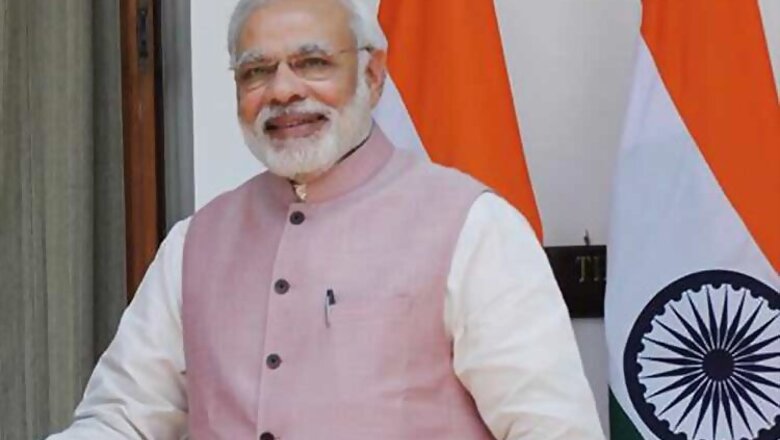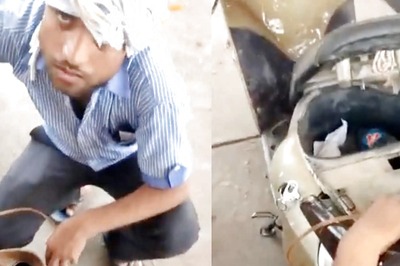
views
New Delhi: Prime Minister Narendra Modi left for a six-nation tour on Monday to attend the BRICS summit in Russia and the Shanghai Cooperation Organisation. Modi will visit five Central Asian nations including Uzbekistan, Kazakhstan and Tajikistan to deepen strategic footprints and energy cooperation.
With focus on enhancing strategic, economic and energy ties, Modi is scheduled to travel from July 6 to 13 to five Central Asian countries and Russia where he will attend the summits of BRICS and SCO.
The Prime Minister's visit will start with Uzbekistan from where he will go to Kazakhstan on July 7. He will then travel to Russia on July 8, before moving to Turkmenistan on July 10, Kyrgyzstan on July 11 and Tajikistan on July 12.
Finance Minister Arun Jaitley will also be leaving on a four-day visit to Russia to participate in the inaugural meeting of the BRICS backed New Development Bank.
Sources in the PMO said that Modi will meet his Pakistani counterpart Nawaz Sharif in Russia. This will be the first formal meeting between the two leaders after May 2014. The PMO is expected to make an official announcement on this very soon.
Meanwhile, Pakistan government sources have said that the government is looking forward to the meeting and that several significant issues will be discussed.
Terming Modi's visit to Central Asia a "landmark" event to revitalise our ancient links with the region, the Confederation of Indian Industry (CII) estimated that trade with the five Central Asian countries of Kazakhstan, Turkmenistan, Tajikistan, Uzbekistan and Kyrgyzstan can grow manifold from the small base of $1.4 billion currently.
Stressing on the need to develop more transport corridors to connect India to the Central Asian region, the CII said priority must be given to the TAPI (Turkmenistan-Afghanistan-Iran-Pakistan) pipeline project.
It also recommended the energy sector be accorded high priority, as Kazakhstan is a significant oil producer while the other countries are estimated to have large reserves of natural gas.
The CII said major areas of opportunity for India in Central Asia include oil and gas, minerals and metals, agricultural products, pharmaceuticals, textiles and chemicals.
The industry body said trade with the region can grow manifold provided the right connectivity is put in place.
According to Assocham, the recent hike in FDI limit to 49 per cent is expected to bring more investments, particularly from Russia into the defence sector.
Earlier, FDI limit of 26 per cent was the main hurdle holding back global OEMs (original equipment manufacturers) from investing in the Indian defence production, it said.
India-Russia bilateral trade of about $7 billion has not only remained much below the potential, it has also remained highly skewed for a few items besides defence sector.
The bilateral investment has also remained at subdued level of $8 billion, Assocham said.
It suggested that with liberalisation of policies for FDI in defence production, India should collaborate with Russia to set up a Special Economic Zone for defence and aerospace.
(With additional information from PTI)





















Comments
0 comment